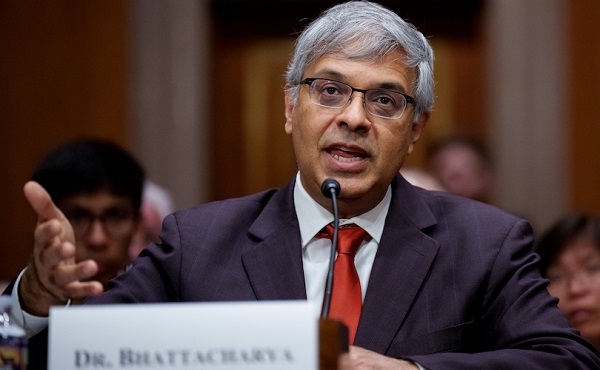Entertainment
Joe Rogan at the Northern Jubilee Auditorium Sept. 8th

You’ve seen Joe Rogan in a lot of places … in his teens, a champion fighter, then later, on television in a variety of roles.
“One of the most complex and exciting stand-ups working in America today. Like an idealistic hippy stuck inside the body of a testosterone-pumped US marine. He’s been likened to late great US comedians such as Bill Hicks and Sam Kinison, but although he exhibits a similar brand of furious indignation, his observations and revelations are entirely his own. His angry, insightful act is an absorbing battle between his raw libertarian instincts and his refined liberal sensibilities.” –William Cook, The Guardian
A standup comedian for more than 20 years, Joe Rogan sells out theatres internationally with his inquisitive and intense comedic style. Rogan released his third hour special, Joe Rogan Live From The Tabernacle, exclusively through his website on December 18, 2012. He starred in the hour specials Talking Monkeys in Space (2009) now available on CD & DVD and Joe Rogan Live (2007) now available on DVD, and released the CD’s Shiny Happy Jihad (2007) and I’m Gonna Be Dead Someday (2000).
Rogan is host of The Joe Rogan Experience, featuring long form conversation with guests that is one of the most popular comedy podcasts on iTunes. Fans can watch the podcast on Ustream and the podcast can also be heard on Sirius XM’s “The Virus” channel on Saturdays at Noon ET and Sundays at 5:00 AM and 6:00 PM ET.
Joe’s Syfy TV series, Joe Rogan Questions Everything, premiered on July 24 with 1.3 million viewers as the highest rated Syfy reality series in five months. A life- long unexplained paranormal mystery-addict, the show features Joe venturing into unknown worlds and untapped territories to search for answers to life’s most startling theories.
Since 2002, Rogan has provided color commentary for the UFC (Ultimate Fighting Championship) on Pay Per View, Spike Television and now on FOX. Rogan’s passion for MMA began with martial arts practice at the age of 13. Within two years, the Boston native earned a black belt and soon became the Massachusetts full contact Tae Kwon Do champion four consecutive years. By the age of 19, Rogan won the US Open Tae Kwon Do Championship and as lightweight champion went on to beat both the middle and heavyweight title- holders to obtain the Grand Championship.
Rogan was recently seen in the film Here Comes The Boom and he starred in the film Zookeeper (2011). Rogan hosted the high stakes game show Fear Factor, on NBC in 2011/12 and previously for six seasons from 2001-2006. Prior to Fear Factor, Rogan played Joe Garrelli, the resident electrician on the hit NBC comedy series NewsRadio.
Rogan resides in Los Angeles and regularly performs stand- up locally and internationally.
For tickets CLICK HERE.
To see the schedule of events at the both the Northern and Southern Jubilee Auditoria, CLICK HERE.
Business
Disney cancels series four years into development, as it moves away from DEI agenda

 MxM News
MxM News
Quick Hit:
Disney’s decision to cancel its planned ‘Tiana’ streaming series follows the entertainment giant’s move away from diversity, equity, and inclusion (DEI) policies. The company, once deeply committed to political activism, is now struggling to recover from years of financially disastrous content choices.
Key Details:
-
Disney announced the end of DEI-based management decisions and the winding down of its “Reimagining Tomorrow” initiative earlier this year.
-
The Hollywood Reporter revealed that the cancellation of ‘Tiana’ was part of Disney’s broader retreat from “original longform content for streaming.”
-
Analyst Ian Miller notes that Disney’s prior focus on political messaging rather than quality content led to repeated box office failures.
Diving Deeper:
Disney has spent the past several years prioritizing political activism over storytelling, leading to a sharp decline in the company’s financial performance and audience engagement. According to Ian Miller of OutKick, “Disney assumed that any content that represented ‘diverse’ audiences or featured ‘diverse’ characters would be successful.” That assumption, he argues, proved costly.
The decision to cancel ‘Tiana’ comes at a time when Disney is reeling from multiple box office disappointments, including the expected failure of ‘Snow White’ and the ongoing struggles of both Marvel and Lucasfilm properties. Miller highlights the alarming trend, stating, “Marvel’s ‘Captain America: Brave New World’ may actually lose money, with a disastrous $342 million worldwide gross through the first three and a half weeks.”
The ‘Tiana’ series was first announced in December 2020, a time when Disney was fully embracing its progressive agenda. The Hollywood Reporter noted that the show struggled to find its creative direction despite being in development for over four years. Miller suggests that, in the past, Disney would have continued with such a project regardless of its quality, out of fear of backlash from the left. “Under its prior operating mandate, Disney would have pushed forward anyway, believing that canceling a show based on a black character would be unacceptable to left-wing critics,” Miller writes.
However, the company’s recent shift suggests an overdue recognition that audiences ultimately demand quality over ideology. As Miller points out, “Parents want to take their kids to the movies, or give them family-friendly content to watch at home when they need a distraction. For decades, that meant Disney. Until the company prioritized targeting demographics instead of quality.”
While Disney appears to be learning from its missteps, the road to recovery will be long. As Miller emphasizes, the key to regaining audience trust isn’t to abandon diverse characters but to “get it right instead of doing it to check a box.”
Arts
Trump’s Hollywood envoys take on Tinseltown’s liberal monopoly

Quick Hit:
President Trump has appointed Jon Voight, Sylvester Stallone, and Mel Gibson as “special envoys” to Hollywood, aiming to restore a “Golden Age” and challenge the industry’s entrenched liberal bias. According to RealClearPolitics’ Ethan Watson, the move highlights the necessity of reclaiming cultural institutions from leftist control.
Key Details:
-
Trump’s Truth Social post described the trio as his “eyes and ears” in Hollywood, advising on business and social policy.
-
Hollywood’s leftist dominance, as seen in Disney’s political agenda and the cancellation of Gina Carano, has alienated conservatives.
-
Watson argues that Trump understands “politics is downstream from culture” and that influencing Hollywood is vital to shaping American values.
Diving Deeper:
President Trump’s latest move to reshape Hollywood has the entertainment industry buzzing. By appointing Jon Voight, Sylvester Stallone, and Mel Gibson as his “special envoys” to Tinseltown, Trump is signaling that conservatives no longer need to cede cultural institutions to the left. As RealClearPolitics’ Ethan Watson writes, “Donald Trump understands something many right-wingers haven’t for a long time: It’s time to take back institutions.”
Trump, who has long criticized Hollywood’s liberal slant, sees the entertainment industry as a battleground for shaping public opinion. “Although studies have shown that many Americans, particularly younger people, are unaware of the biggest news story of the day, nearly all of them consume media produced by Hollywood,” Watson notes. This cultural dominance, Watson argues, has been exploited to push a left-wing agenda, alienating conservative voices.
The case of Gina Carano exemplifies Hollywood’s intolerance toward dissent, Watson writes. The former “Mandalorian” star was fired by Disney in 2021 after posting a historical comparison on social media. “In truth, her cancellation was most likely due to her mocking pronoun virtue signaling and COVID-19 precautions that were essentially an entrance fee into the upper echelons of Hollywood,” Watson states. The politicization of entertainment didn’t stop there—Disney executive Latoya Raveneau openly admitted to inserting a “not-at-all-secret gay agenda” into children’s programming.
Watson pushes back against the idea that conservatives should simply “build their own” Hollywood, arguing that the industry is too integral to American culture to be abandoned. “Casting it aside would be like trying to create an alternative to Mount Rushmore or baseball – it’s irreplaceable,” he writes. Trump’s decision to highlight conservative-friendly stars like Stallone, Voight, and Gibson sends a powerful message: conservatives in Hollywood no longer have to stay silent.
Trump’s envoys are a step toward restoring balance in an industry that has become a one-party echo chamber. “Hollywood, along with social media, has become the ‘town square,’ the medium by which Americans share ideas,” Watson explains. With leftist cancel culture stifling dissent, Trump’s initiative is not just about entertainment—it’s about ensuring freedom of expression in America’s most influential industry.
-

 2025 Federal Election2 days ago
2025 Federal Election2 days agoPoilievre refuses to bash Trump via trick question, says it’s possible to work with him and be ‘firm’
-

 2025 Federal Election1 day ago
2025 Federal Election1 day agoFool Me Once: The Cost of Carney–Trudeau Tax Games
-

 Energy21 hours ago
Energy21 hours agoPoll: Majority says energy independence more important than fighting climate change
-

 Health2 days ago
Health2 days agoCanadian pediatrics group tells doctors to affirm gender confusion in children as young as 6
-

 Automotive2 days ago
Automotive2 days agoTrump announces 25% tariff on foreign automobiles as reciprocal tariffs loom
-

 Addictions1 day ago
Addictions1 day agoShould fentanyl dealers face manslaughter charges for fatal overdoses?
-

 Alberta1 day ago
Alberta1 day agoAlberta Institute urging Premier Smith to follow Saskatchewan and drop Industrial Carbon Tax
-

 Health1 day ago
Health1 day agoHow the once-blacklisted Dr. Jay Bhattacharya could help save healthcare









